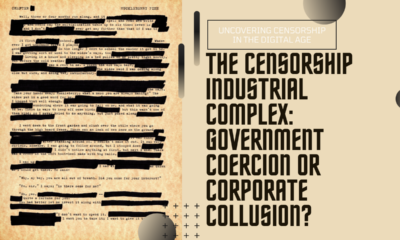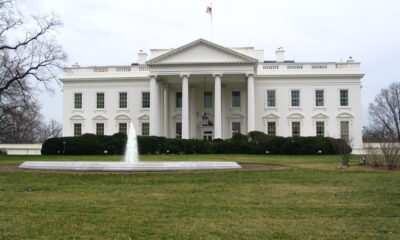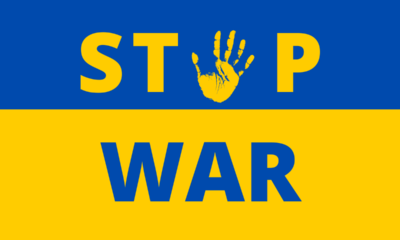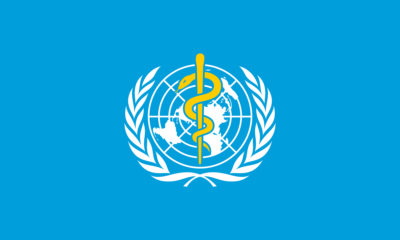Executive
Missouri plaintiffs file opposition to stay
The plaintiffs in Missouri v. Biden filed their memorandum in opposition to a stay of the great injunction handed down on July 4.
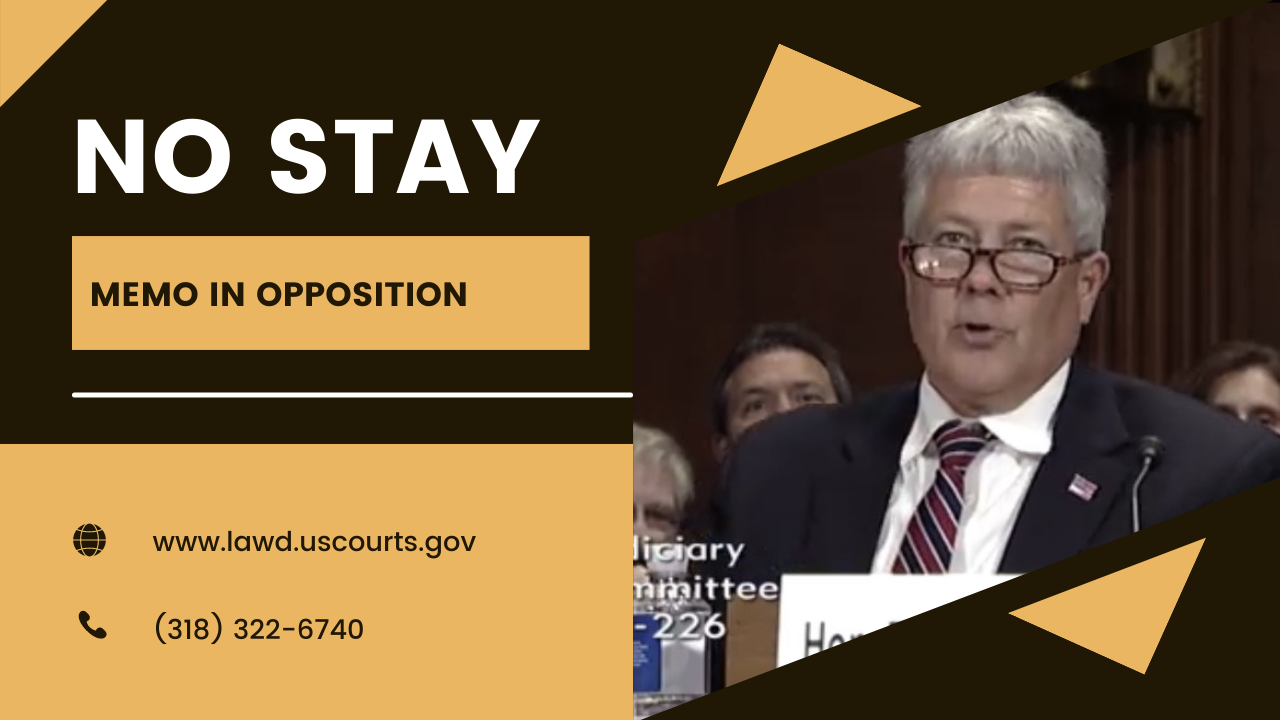
Yesterday the plaintiffs in Missouri v. Biden filed a memorandum in opposition to the government’s Motion to Stay. The government seeks to stay the injunction against further contact with social media companies in aid of censorship.
Missouri, Louisiana, and others oppose the motion
The Missouri plaintiffs filed their memorandum the day before a Monday morning deadline. Judge Terry A. Doughty of the U.S. District Court for the Western District of Louisiana (Monroe Division) set a deadline of July 10 at 8:00 a.m. CDT for a response to the government’s own memorandum in support of a stay. The Court Listener service has a full list of documents on Missouri v. Biden available here. This page lists 299 documents on this case, including the complaint, three amended complaints, and many motions, orders, etc. The latest complaint names, among others, Dr. Hugh Auchincloss, successor to Dr. Anthony Fauci as director of the National Institute for Allergies and Infectious Diseases.
As CNAV observed earlier, the government’s memorandum rehashes all the arguments they made at the stay hearing and earlier filings. Those filings, and the memo, all allege that this vast and “vague” injunction might cause “grave harm.” (Harm to whom? The government won’t say.) Judge Doughty did allow the government eight specific allowances of contact it would permit. If those carve-outs present a problem, it’s because they might allow too much. CNAV expects the government to play fast and loose with its definitions of “criminal activity,” “national security threats,” vote suppression, foreign influence on elections, “public safety and security,” and “malicious cyber activity.” That the government still needs complete freedom to flag content it does not like, begs explanation.
No examples
In any case, the government never once cited a single concrete example of any censorship action that prevented harm. But the government did speak to two categories of activity they say the injunction would forbid:
- “Speaking on matters of public concern,” and
- “working with social media companies on initiatives to prevent grave harm to the American people and our democratic processes.”
As to matters of public concern, the injunction actually allows that – verbatim. The only objection anyone might have to the government so speaking is that, in this administration, all too often, we see the White House Press Secretary and other officials making campaign speeches that masquerade as public service announcements. But “the correct remedy for bad speech is more speech,” and the people may listen – or not – as they wish.
The second part concerns the Missouri plaintiffs more. To quote their memorandum:
[T]he way the Government supposedly “prevent[s] grave harm to the American people and our democratic processes” is to pressure and induce social-media platforms to censor disfavored viewpoints on COVID-19, elections, and other core political speech.
Which violates the First Amendment, the very point of the complaint.
Moving on, the Missouri plantiffs assert that “the scope of the injunction matches the scope of the … violations.” Furthermore, a court may issue a broad injunction to forbid violations by a party already shown to be in the habit of violating law or Constitution.
They can’t tell what’s protected speech?
The government then seems to assert that they can’t tell what speech is protected and what isn’t protected. But the Court addressed that in a footnote giving a definition of “protected speech.” Reference to legal standards in injunctions happens all the time, the plaintiffs say.
The most important point the Missouri plaintiffs make, is that a stay would cause them irreparable harm. That’s why Judge Doughty handed down an injunction, of course. One objection that looks specious on its face is that the forbidden conduct is more than a year old. In fact it started more than a year ago and never stopped. (Arguably it stopped with regards to Twitter, because Elon Musk bought the company and revealed a broad range of First Amendment violations from the Twitter side.)
Lastly, the memorandum addresses likelihood of prevailing on the merits. Perhaps the government, in its own memorandum, included a conclusion that they would prevail on the merits, as mere boilerplate. In any case, the plaintiffs address that and refer to the Court’s own analysis to support their position.
[T]he Government seeks a stay of the injunction so that it can continue violating the First Amendment. The motion for stay should be denied.
Update: Missouri plaintiffs win again
Today Judge Doughty denied the motion to stay his injunction. He had served a Notice of Deficiency on the plaintiffs, because their Memorandum lacked tables of contents and authorities. The Missouri plaintiffs later sent in a corrected document. Judge Doughty also issued a memorandum ruling explaining the denial.
Terry A. Hurlbut has been a student of politics, philosophy, and science for more than 35 years. He is a graduate of Yale College and has served as a physician-level laboratory administrator in a 250-bed community hospital. He also is a serious student of the Bible, is conversant in its two primary original languages, and has followed the creation-science movement closely since 1993.
-

 Constitution5 days ago
Constitution5 days agoPrecinct Strategy scores again
-
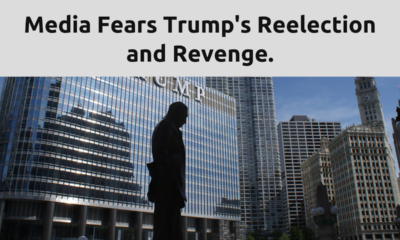
 Civilization4 days ago
Civilization4 days agoLegacy media already assume Trump wins
-

 Civilization2 days ago
Civilization2 days agoAntisemitism – and misguided legislation
-
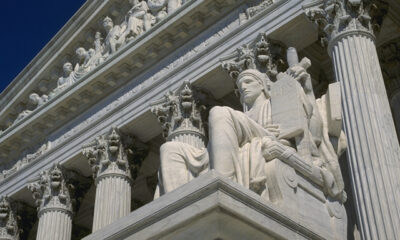
 Civilization4 days ago
Civilization4 days agoSCOTUS Is Last Bulwark Against Critical Legal Studies
-

 News5 days ago
News5 days agoTime to Fly – Really Fast
-

 Civilization4 days ago
Civilization4 days agoEnergy Pipeline Companies Should Follow the Rules of the Road
-

 Education5 days ago
Education5 days agoThe Road Back to Normalcy Starts Where the Problem Began: College Campuses
-
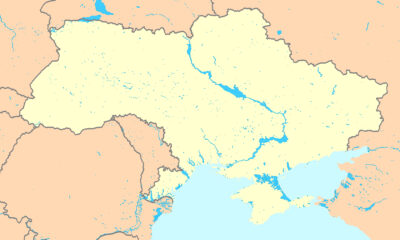
 Civilization4 days ago
Civilization4 days agoWhat 10 Years of U.S. Meddling in Ukraine Have Wrought (Spoiler Alert: Not Democracy)



